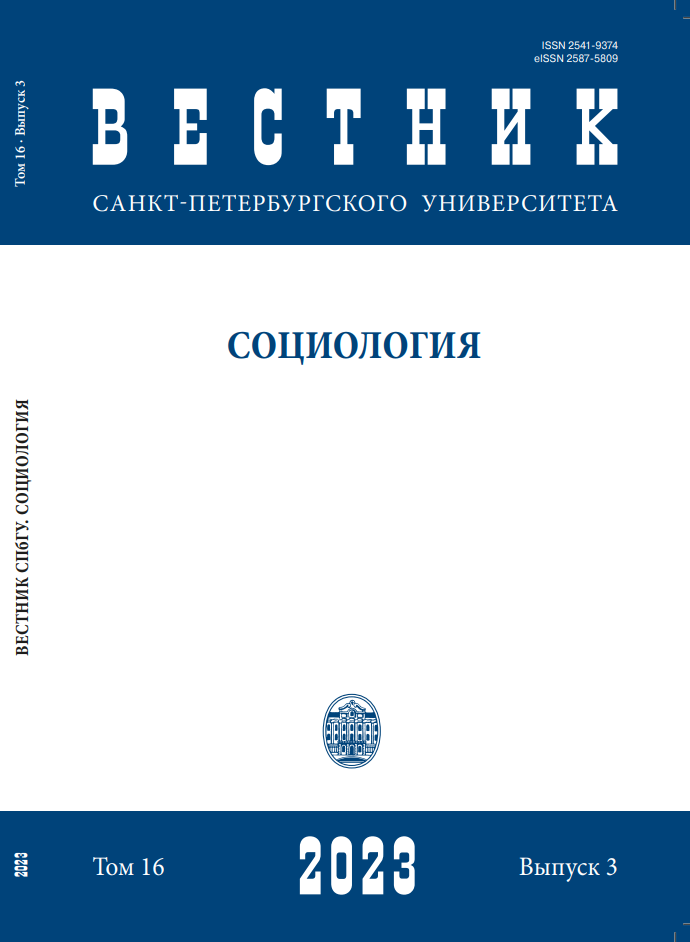Relational sociology of Harrison White and his followers: Towards a theory of sociocultural duality
DOI:
https://doi.org/10.21638/spbu12.2023.301Abstract
The paper presents an overview of the history of the cultural turn in social network analysis. The cultural turn has proclaimed the crucial role of not only social but also cultural structures. On the one hand, cultural structures construct a context for social interactions. On the other hand, social network mechanisms determine the features of the use of symbolic forms by actors. According to Harrison White and John Mohr, sociocultural duality can be defined as a process of mutual construction of social and cultural orders. It should be noted that the idea of White about the mutual construction of culture and structure (the concept of netdom) has become a starting point for theoretical and empirical debates on the duality of social and cultural networks. The concept of network domain (netdom) includes both social networks (net) and spaces of symbolic forms (dom). Hence, the task of this paper is to identify the theoretical and methodological arguments of researchers emphasising the importance of sociocultural duality. The paper discusses in detail the concepts of duality and relational sociology. But the main part of the article is focused on the analysis of the relational sociology of Harrison White and his followers (A.Mische, J.Fuhse, N.Crossley). Relational sociology rejects substantialist ideas and, therefore, it is directed to the research of processual social and cultural structures. The final arguments summarise cutting-edge topics for future research on sociocultural duality
Keywords:
relational sociology, Harrison White, duality, culture, social networks
Downloads
References
Downloads
Published
How to Cite
Issue
Section
License
Articles of "Vestnik of Saint Petersburg University. Sociology" are open access distributed under the terms of the License Agreement with Saint Petersburg State University, which permits to the authors unrestricted distribution and self-archiving free of charge.




